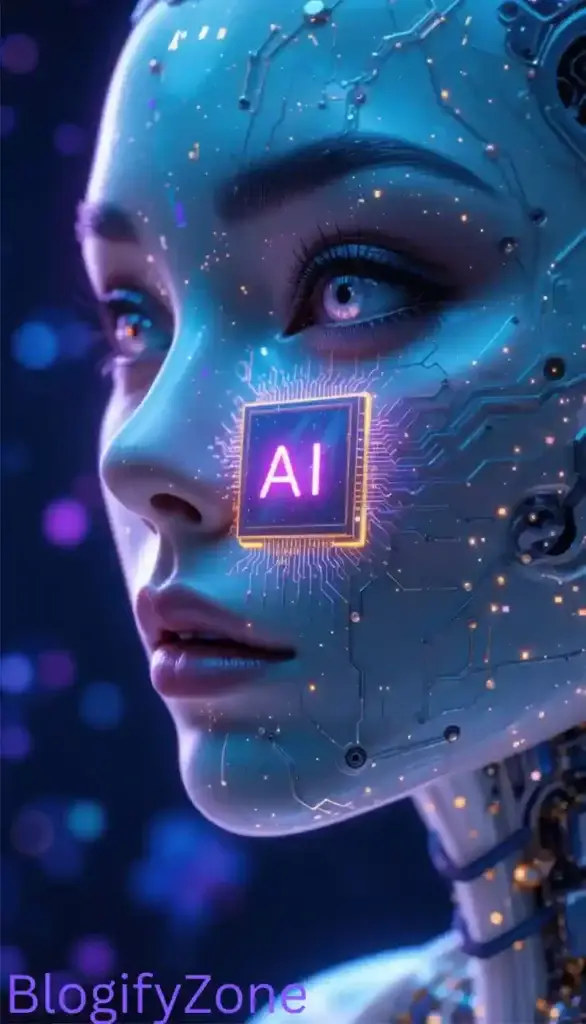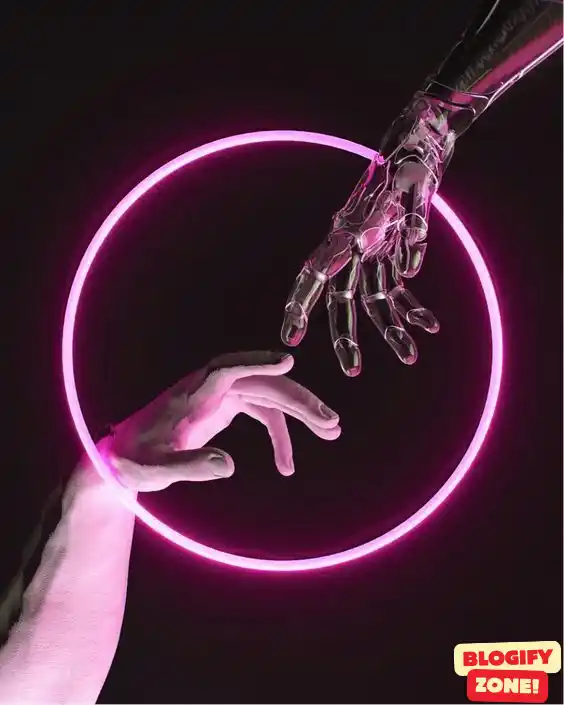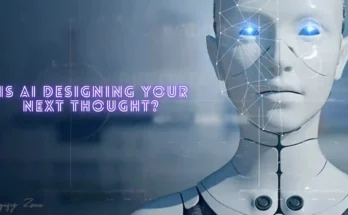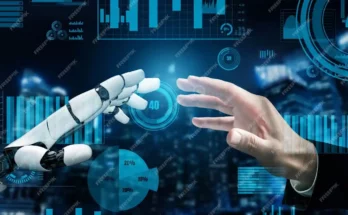Table of Contents
ToggleIntroduction
Artificial Intelligence (AI) has quietly moved from the background to the center of our lives. It influences the music we hear, the products we buy, and the opinions we form. In 2025, it’s no longer just about smart technology — it’s about who holds the power in the digital world, and more importantly, how AI controls our choices without us even realizing it.
Are we informed users making smart decisions, or have we become digital slaves to systems that quietly decide for us?
This article explores how AI influences our choices, often without us realizing it — and whether we can truly call ourselves free in a world run by algorithms.
AI’s Quiet Takeover of Daily Life
AI is no longer some futuristic concept. It’s right here — guiding your decisions from the shadows. Whether it’s your voice assistant playing your favorite song, or your email suggesting responses before you type — AI is shaping your behavior without asking for permission.
You don’t see it, but it’s there. Always watching. Always learning.
It’s not just about convenience anymore. It’s about how many decisions you no longer consciously make.
The Illusion of Choice

We feel empowered scrolling through thousands of products, playlists, and profiles. But behind the scenes, it’s AI narrowing the menu. You’re not seeing everything — you’re seeing what the system wants you to see.
Important to understand:
Your feed isn’t freedom — it’s a filtered path designed for engagement.
Every choice you think you’re making might already have been made for you.
That’s the illusion of choice. It looks like freedom, but feels like influence.
Personalization or Manipulation?
Companies sell personalization as a benefit. But when AI starts showing you what it thinks is best for you, rather than what you actually need, there’s a problem.
Ask yourself:
Is AI helping me — or selling to me?
Are recommendations improving my life — or making me spend more?
The fine line between help and control is often crossed without warning.
How AI Shapes Consumer Habits

AI drives modern marketing. From the ads you see to the timing of the offers you receive, everything is tailored using predictive data models.
Real Examples in 2025:
Your online store knows you’ll re-order shampoo before you do.
Your grocery app adds “items you might be low on” automatically.
Sale notifications appear just when you feel bored.
You’re not just buying products — you’re buying what the system wants you to desire.
Predictive Algorithms and Behavioral Tracking
Predictive AI doesn’t wait for you to act. It acts for you.
Here’s what it already knows:
How long you stare at a product
What headlines make you pause
What time of day you’re most likely to spend money
It doesn’t just read your behavior — it rewrites your future behavior.
Key Insight:
Prediction turns into persuasion when algorithms start deciding what you want next.
News, Opinions, and AI-Fueled Echo Chambers

Gone are the days of reading balanced news. In 2025, headlines are curated by AI for emotional effect.
What that means for you:
You only see news that confirms what you already believe
Contradictory views are filtered out
Outrage and controversy get priority over truth
The result? A personalized echo chamber that keeps you misinformed and emotionally reactive.
Social Media: The Ultimate Control Machine
Social platforms are built to keep you scrolling. AI curates your feed to maximize time and interaction — even if that means manipulating your emotions.
This is not random:
Posts that trigger strong reactions are prioritized.
Content that matches your bias gets boosted.
You’re shown what keeps you addicted, not what educates you.
You think you’re browsing. In reality, you’re being led.
Are We Addicted to Being Controlled?

Let’s be honest — we like it when AI makes life easy.
It reduces effort, saves time, and limits decision fatigue. But this convenience has a cost: the erosion of personal agency.
Ask Yourself Honestly:
When was the last time I made a truly independent online decision?
Do I trust my preferences — or the algorithm’s suggestions?
Dependence feels like comfort — until you realize you’re no longer choosing.
Real-World Case Studies from 2025
Amazon’s Predictive Cart
Auto-adds products you’ve reordered in the past — even before you search for them. Helpful? Maybe. Manipulative? Absolutely.
TikTok’s Emotion-Responsive AI
Analyzes your face and background to guess your mood and adjusts your feed accordingly. It’s not entertainment — it’s emotional engineering.
Facebook’s AI-Driven Groups
Recommends communities based on your private chat tone. Feels organic — but it’s calculated. Result? More polarization.
Key Insight:
You’re not interacting with platforms — you’re interacting with profit-optimized prediction machines.
Are Consumers Fighting Back?

Awareness is rising. Users are starting to ask better questions. Some are resisting the AI tide.
Signs of Resistance in 2025:
Growth in privacy-first apps
Surge in human-curated news sources
Pushback against addictive designs
Lawmakers proposing AI transparency laws
But the fight is uphill. For every step toward control, there’s a push from corporations to keep the system profitable.
Smart or Slave? The Blurred Line
This is the heart of the question. Are we using AI — or is it using us?
Some argue that letting AI help with decisions is a sign of progress. Others believe it’s making us intellectually lazy.
Deep Reflection Point:
If you don’t control your inputs, how can you trust your outputs?
If your desires are shaped externally, can they be truly yours?
Freedom in the digital age isn’t about options — it’s about awareness.
Psychological Impact of Algorithmic Living

This constant exposure to AI-driven content affects how we think and feel.
Mental & Emotional Effects:
Chronic decision fatigue
Decreased motivation to explore outside the algorithm
Emotional burnout from overstimulation
Distorted sense of self
You become what the algorithm expects — not who you are.
Final Verdict: Awareness Is the New Freedom
We can’t reverse technology, but we can rethink how we use it. The goal isn’t to reject AI. It’s to use it consciously.
Ask Yourself Right Now:
Who is making the decisions in your life — you or the algorithm?
Are you living your values — or what the system feeds you?
Are your choices informed — or influenced?
Being a smart consumer in 2025 means questioning everything. Not with fear — but with clarity.
Conclusion
AI now plays a silent but powerful role in every choice we make. It simplifies life, but also steers it — sometimes subtly, sometimes forcefully.
We are not helpless — but we must be aware.
The challenge of our era isn’t technological. It’s psychological. It’s not about banning AI — it’s about balancing its role in our lives.
To live freely in 2025 is to understand the systems behind our screens. Only then can we choose — truly choose — what we want to think, believe, and become, instead of letting algorithms decide how AI controls our choices for us.



